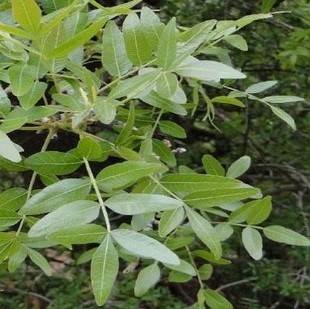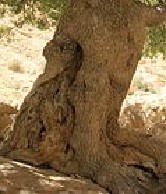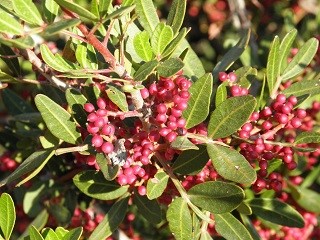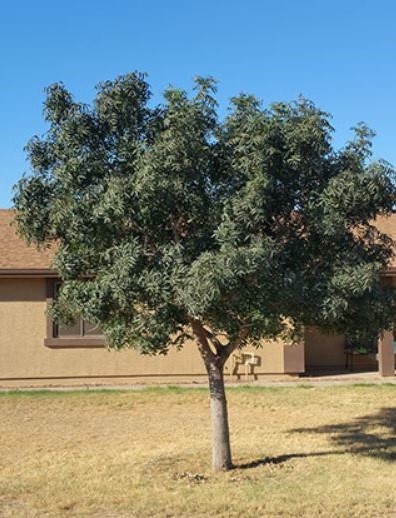Trees
Anacardiaceae
Anacardiaceae
Description :
A medium sized deciduous tree 10 to 15 m tall. The crown is spreading
with stem diameters of 38 to 48 cm. Leaves are compound, large 16 to 25 cm
long. It is dioecious. The female flowers are in long, 15 to 25 cm, bunches.
The tree flowers between March and May. It has no observed insect or disease
problems. It can be reproduced both from seed and by vegetative means. Its growth
is slow with a diameter growth of 0.5 to 0.75 cm/yr. It reaches maturity
between 50 and 60 years of age. Twisted with medium fine, somewhat uneven
grain. Sapwood is light brown and heartwood is dark, reddish brown with black
streaks. Dense with a specific gravity of 0.68 and a calorific value of 5100
kcal/kg.
Distribution :
The
tree is native to Pakistan, India, and Afghanistan cultivated in many parts of
the world. In Pakistan it is found in the foothills of Azad Kashmir, the Gilgit Baltistan, Murree hills, Rawalpindi, Hazara, Peshawar, Swat, Chitral, the
Salt range and Balochistan. Quite common as an avenue tree in Islamabad. A
moderately tolerant tree that grows well on shallow, calcareous, stony, and
sandy soils. It is drought hardy and will grow on steep hill sides with hot
aspects. It requires a precipitation zone of 400 to 1250 mm/yr. It prefers a
humid sub-humid, cool sub-tropical monsoon to semi-arid winter/monsoon climate
with a temperature range of -5 to 40°C at elevations between 400 and 1250 m.
Uses :
This
tree has been over harvested because of its desirable fuel characteristics. It
is a valuable member of the mixed coniferous forest and should be protected. It
has potential for large scale, mixed plantings with Chir pine to protect watersheds.
Also used for ornamental, fodder, furniture and wood carving, and medicinal
(galls are considered an expectorant) purposes.



